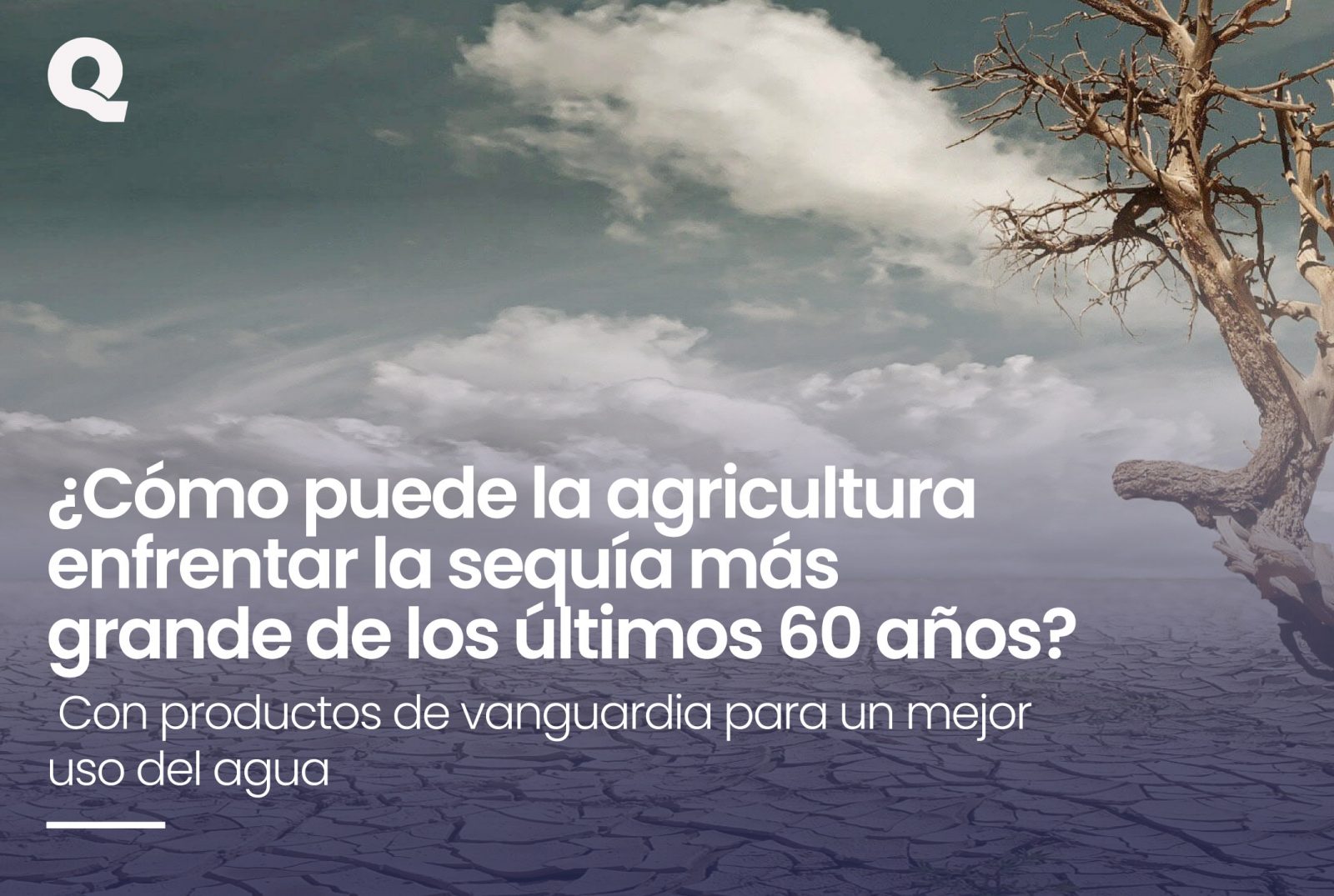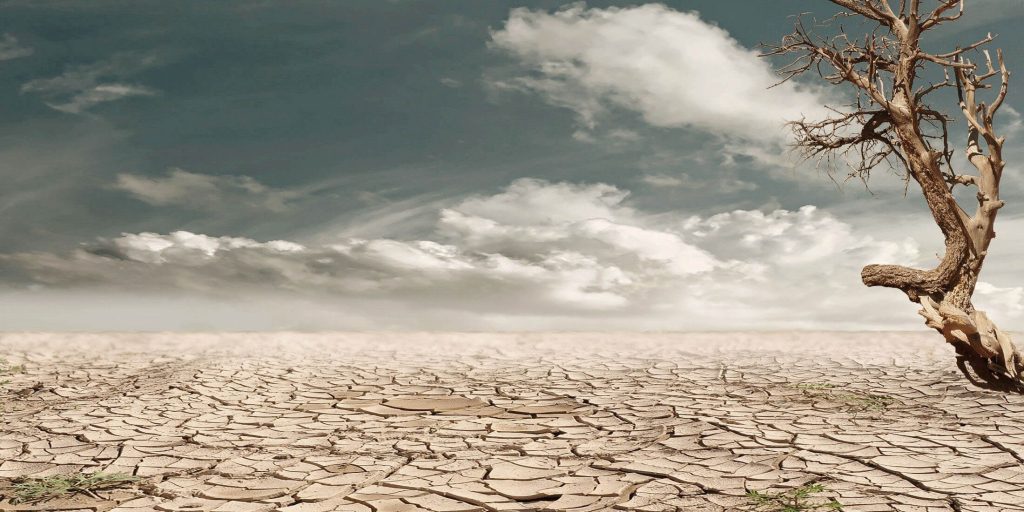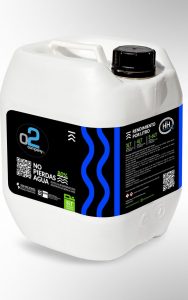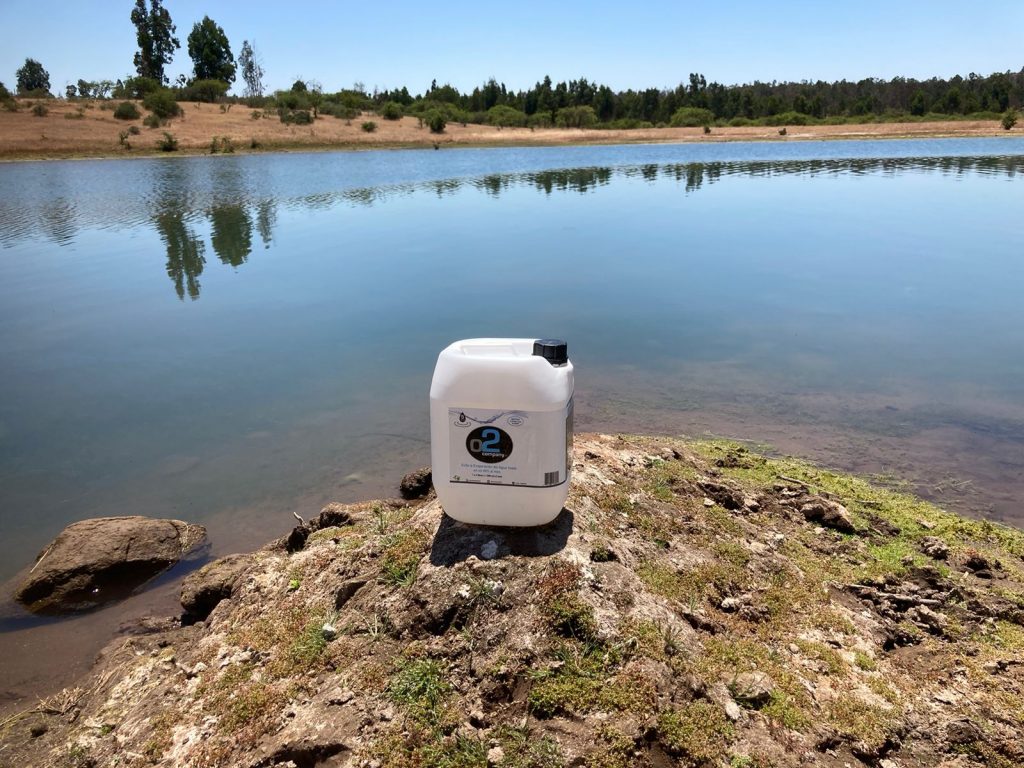
Cuando se habla de cambio climático, lo primero que viene a la mente son temperaturas récord de calor, fenómenos naturales que antes no se daban en ciertas zonas, glaciares derritiéndose e incendios forestales. En Chile, hemos visto todas las anteriores. Sin embargo, uno de los efectos más patentes que tiene el calentamiento global en el país, y en el mundo, es la escasez de agua.

Se estima que cerca de un 72% de la superficie nacional sufre de sequía y que Chile es uno de los 18 países con mayor riesgo de sufrir estrés hídrico. El déficit de agua lleva al menos una década siendo un problema urgente y, de hecho, se habla de que estamos en el período de sequía más grande de los últimos 60 años.
Según las Naciones Unidas, la huella hídrica de la producción mundial está relacionada en un 70% con la producción de alimentos. El Banco Mundial estima que más de 330 millones de hectáreas en el mundo tienen instalaciones de riego. Y siendo la agricultura una de las actividades económicas esenciales del país, tanto los agricultores como los tomadores de decisiones deben promover un uso más sustentable del agua, para mitigar los efectos de la crisis hídrica.
Quipasur, en su búsqueda de ser un partner para sus clientes, está en constante desarrollo de nuevos productos y tecnología que sean innovadores y que tengan en cuenta el problema medioambiental. Es por eso que la empresa generó una alianza para ser el distribuidor de O2, un mitigador de evaporación de agua para tranques y estanques, especialmente formulado para que empresas agricultoras, mineras, sanitarias, energéticas e industriales puedan reducir sus pérdidas de agua y utilizar este recurso de forma más eficiente y sostenible.

O2: bueno para la empresa, bueno para el medio ambiente
Hace cinco años Carlos Korner comenzó con la elaboración de un producto que no existía, una monocapa líquida superficial al agua que evita la evaporación del agua hasta en un 80%, un problema que, con las alzas de la temperatura y la falta de lluvias, se torna indispensable.
“Las pérdidas de agua por evaporación son gigantes. Se pierde un tercio del volumen de agua al año. Un tranque agrícola en Chile pierde entre uno y dos centímetros diarios verticales al día. Si lo ves en la superficie del agua en una hectárea, son 6.000 metros cúbicos al mes. Eso alcanza para regar toda una plantación de olivos en toda su temporada”, comenta Korner, CEO de O2.

Quipasur, al ver el potencial del producto que se estaba elaborando, decidió ser parte del proceso y constituirse como socio inversor y distribuidor de O2, añadiendo a su portfolio de productos un mitigador innovador, “made in Chile” y amigable con el medio ambiente.
“La curva de eficiencia de la monocapa O2 es de un mes, evitando la evaporación del agua hasta un 80%. Es decir, si a un tranque de una hectárea se le evaporan 6.000 metros cúbicos, con O2 podría recuperar 5.000 o 4.800 metros cúbicos, permitiendo a las empresas dar un mejor uso a sus recursos hídricos”, señala Korner, quien destaca que su producto es también inocuo, ya que no afecta a la fauna.
De hecho, O2, en sus cinco años de vida, ya ha sumado una serie de reconocimientos que avalan su aporte a la sustentabilidad. En 2020 ganaron el Primer Lugar a la Innovación Ambiental de la Cámara Chileno-Británica y fueron elegidos dentro de los Top 5 proyectos sustentables de Latinoamérica en una iniciativa de CNN y la Unión Europea llamada “Re-Acciona por el Clima”.
En este sentido, junto a O2, Quipasur da un paso más en la innovación hacia la creación y distribución de productos que ayudan a sus clientes a sortear la crisis hídrica, con una visión de futuro y de preocupación por el medio ambiente.
 Producto de O2 Company cubriendo un cuerpo de agua
Producto de O2 Company cubriendo un cuerpo de agua


Recent comments